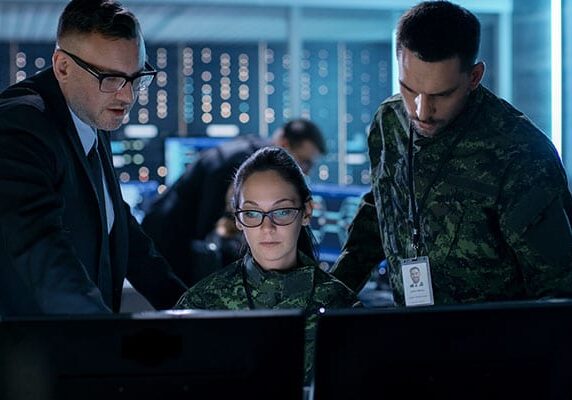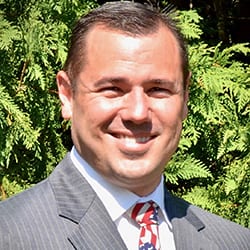Military leadership is often considered one-way communication, where orders are given at senior levels and trickle down through the ranks without question or discussion. While tactical communications do exist while engaged in combat-related operations, this is not the norm.
Day-to-day military life has similarities to that of any large corporate organization. In both environments, leadership must motivate employees to meet goals, complete tasks and interact in a professional manner. As an all-volunteer force, the retention of talented individuals in the military requires the creation of a culture open to input and innovation. To achieve this, the U.S. military is embracing coaching.
The U.S. military is exploring external coaches for leadership at different levels of responsibility and is currently training internal coaches in different areas, such as the Air National Guard (ANG), a reserve component of the U.S. Air Force. In 2018, The ANG reinvented the role of the human resource advisor (HRA).
The HRA position, which is unique to this branch, previously focused on Diversity through professional development training related to organization skills and communication. The new direction of the HRA improved awareness of Diversity with an emphasis on Inclusion, along with professional development efforts. The new cadre of HRAs are trained to become functional practitioners in the instruction of emotional intelligence, temperament awareness, unconscious bias and microaggressions.
Along with the ability to instruct on these skills, ANG leadership rewrote regulations specifically addressing coaching as a tool to cultivate inclusive leaders. For the past three years, HRAs have attended ICF-accredited instruction and training. As a result, each HRA learns the ICF Core Competencies and the importance of powerful questions.
Upon completion of training, these coaching skills are available to military commanders and supervisors. HRAs are trained to use 360- and 180-degree assessments, helping leadership find blind spots that prevent them from creating an inclusive culture. The HRA then uses the coach approach of focus, meaning and outcome to help leaders take ownership of their actions and identify ways to improve. The techniques of coaching are shared with leadership to eliminate accusatory questions like “Why?” and improve listening skills. The work of the HRA is not to turn the military leaders into coaches, but rather to influence a cultural change where open dialogue fosters an environment in which members at all levels feel heard, valued and respected.
The HRA is not the only source for coaching projected in the military. Top U.S. military officials acknowledged that the investment in professional coaches is worth the investment. A plan is in development to give senior commanders and civilian leadership expanded access to credentialed external professional coaches and to increase coaching training throughout all levels. The culture shift to a more inclusive military requires efforts at all levels. To make that shift positive, the focus of Diversity and Inclusion education, especially coaching and coaching skills, should be on the decision-makers and supervisors that set the standards of behavior.
© Robert Fluharty
Disclaimer
The views and opinions expressed in guest posts featured on this blog are those of the author and do not necessarily reflect the opinions and views of the International Coach Federation (ICF). The publication of a guest post on the ICF Blog does not equate to an ICF endorsement or guarantee of the products or services provided by the author.
Additionally, for the purpose of full disclosure and as a disclaimer of liability, this content was possibly generated using the assistance of an AI program. Its contents, either in whole or in part, have been reviewed and revised by a human. Nevertheless, the reader/user is responsible for verifying the information presented and should not rely upon this article or post as providing any specific professional advice or counsel. Its contents are provided “as is,” and ICF makes no representations or warranties as to its accuracy or completeness and to the fullest extent permitted by applicable law specifically disclaims any and all liability for any damages or injuries resulting from use of or reliance thereupon.
Authors
Post Type
Blog
Audience Type
Experienced Coaches, External Coaches, HR & Organizational Leaders, Internal Coaches, Managers/Leaders Using Coaching Skills, Mentor Coaches, New Coaches, Professional Coaches, Team and Group Coaches
Topic
Advance Your Coaching Career, Coaching Skills for Leaders, Coaching in Organizations, Discover - Your Coaching Career
Related Posts
How Career Transition Coaching Protects Your People, Your Brand, and Your Culture
When companies ask me about the ROI of coaching, I usually ask…
The Power of Active Listening in Meaningful Coaching: Why Active Listening is the Most Essential Coaching Competency
Of all the foundational coaching competencies identified by the International Coaching Federation…
Allyship in Action: Coaching as a Catalyst for Change
Allyship is often framed as a value or an intention. In practice,…







